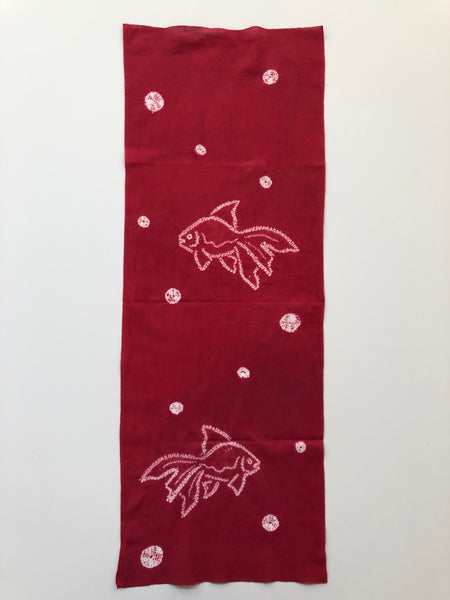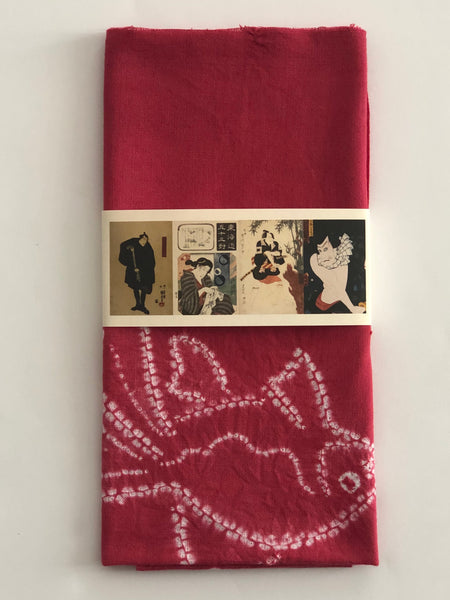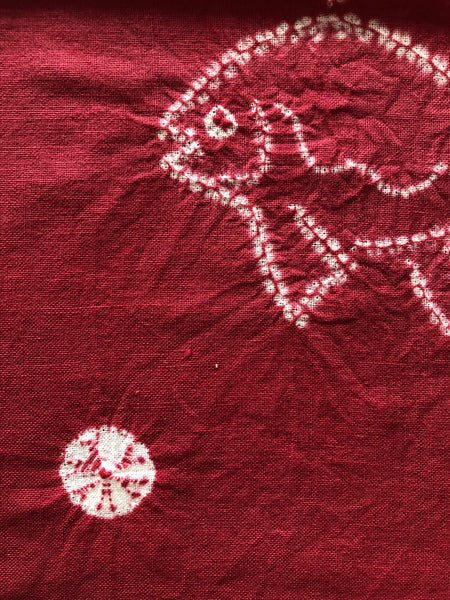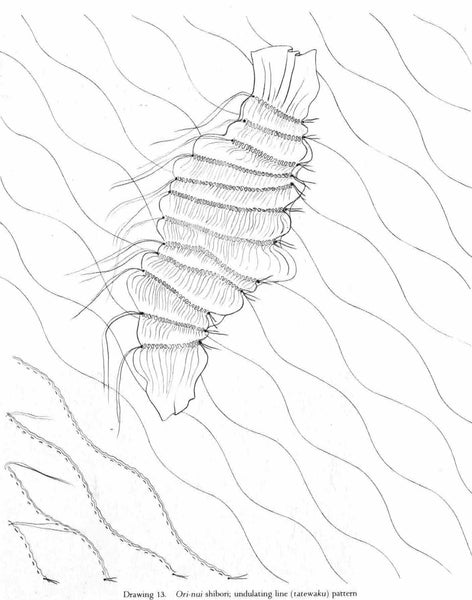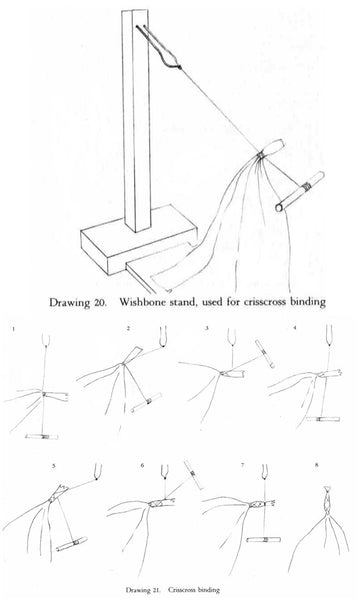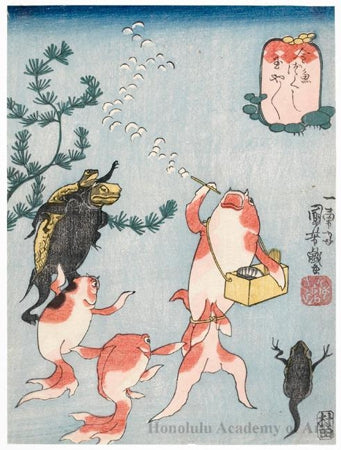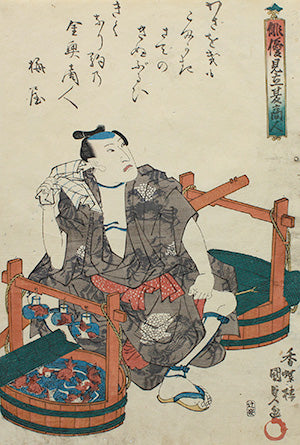Kingyo Ori-nui, Mokume, and Makiage Shibori Tenugui
**If you are interested in a sold out tenugui, please email staff@yoshikowada.com to request a notification when it will be in stock. Production and delivery of certain tenugui can take up to one month from Arimatsu, Japan.
Folded-edge stitch-resist, bound-resist, & parallel stitch-resist in gold fish pattern
Technique: Ori-nui - Folded edge stitch-resist / Makiage - Stitching and crisscross binding in shape of a motif/ Mokume - Parallel running stitch-resist.
Pattern: Kingyo - Goldfish
Goldfish (kingyo) were first introduced to Japan from China during the Muromachi Period (1336-1573). The fish were bred for centuries for a variety of mutations that made them more aesthetically appealing. Collecting goldfish began as a luxurious hobby for daimyo and other wealthy people, but in the late Edo Period, a ”‘goldfish boom” was triggered by lower ranking samurai, many of whom needed to have a side job to support their families. As supply increased, prices came down; and goldfish collecting and breeding became affordable for commoners.
During the Edo Period a summer tradition called Kingyo Sukui (goldfish scooping) began. A large pool or basin is filled with water and a bevy of goldfish, and people are given the opportunity to catch one for a small price. Goldfish are said to enhance luck and their red color is thought to keep disease away, now it is still a popular attraction at yomise or yatai, night & evening stall or pop-up shops of street foods and attractions at natsu-matsuri, summer festival.
Color: Red/White
Approximately 1m x 35cm (39in x 13in)
100% Cotton
Handmade in Arimatsu, Japan
Tenugui are scarf-size, all-purpose towels made of lightweight cotton, used in Japan for centuries and recently popularized and collected because of their beautiful patterns and graphic designs.
Ukiyo-e Example: Utagawa Kuniyoshi (1830s) / Utagawa Kunisada
View the full shibori tenugui collection
SFS SHOP
All sales are final. No returns or refunds.
Slow Fiber Studios is not responsible for lost or stolen packages. Please contact your local post office with your tracking number to resolve any issues with delivery.
Please allow up to five days from the original purchase date for Slow Fiber Studios staff to process orders.
International Customers
USPS First Class International shipping does not include tracking service. Please use Priority Mail International or higher to guarantee tracking to the destination.
Slow Fiber Studios is not responsible for packages held or confiscated at customs. Customs may delay your package delivery significantly. Some countries may require in-person pickup or charge fees before releasing your package. The customer is responsible for any customs fees. Using Priority Mail International or higher is more likely to expedite your package.
Wholesalers
Wholesale prices are available for select shop items. Please enquire with staff@yoshikowada.com for product information, prices, and terms.
Symposium Ticket Purchasing Policy
If cancellation notice for registration is received by the World Shibori Network Foundation on or before 31 May 2026 (00:00, Pacific Standard Time), ticket holders receive a full refund of the registration fee minus $50 for administrative costs.
If registration is cancelled on 1 June through 31 July 2026 (00:00, Pacific Standard Time), ticket holders receive a 50% refund on their registration fee.
If registration is cancelled on 1 August through 25 September 2026 (00:00, Pacific Standard Time), no portion of the registration fee will be refunded.
Cancellation requests due to visa, medical, or personal emergencies will be evaluated on a case-by-case basis. If accepted, ticket holders receive a full refund of the registration fee minus $50 for administrative costs. In all such cases, please email us with a medical or administrative letter on behalf of the reason to info[at]shibori[.]org to discuss your case.
Should the Organizers cancel the event, ticket holders will receive a full refund.
*All 12 ISS notices emailed to info[at]shibori.org








